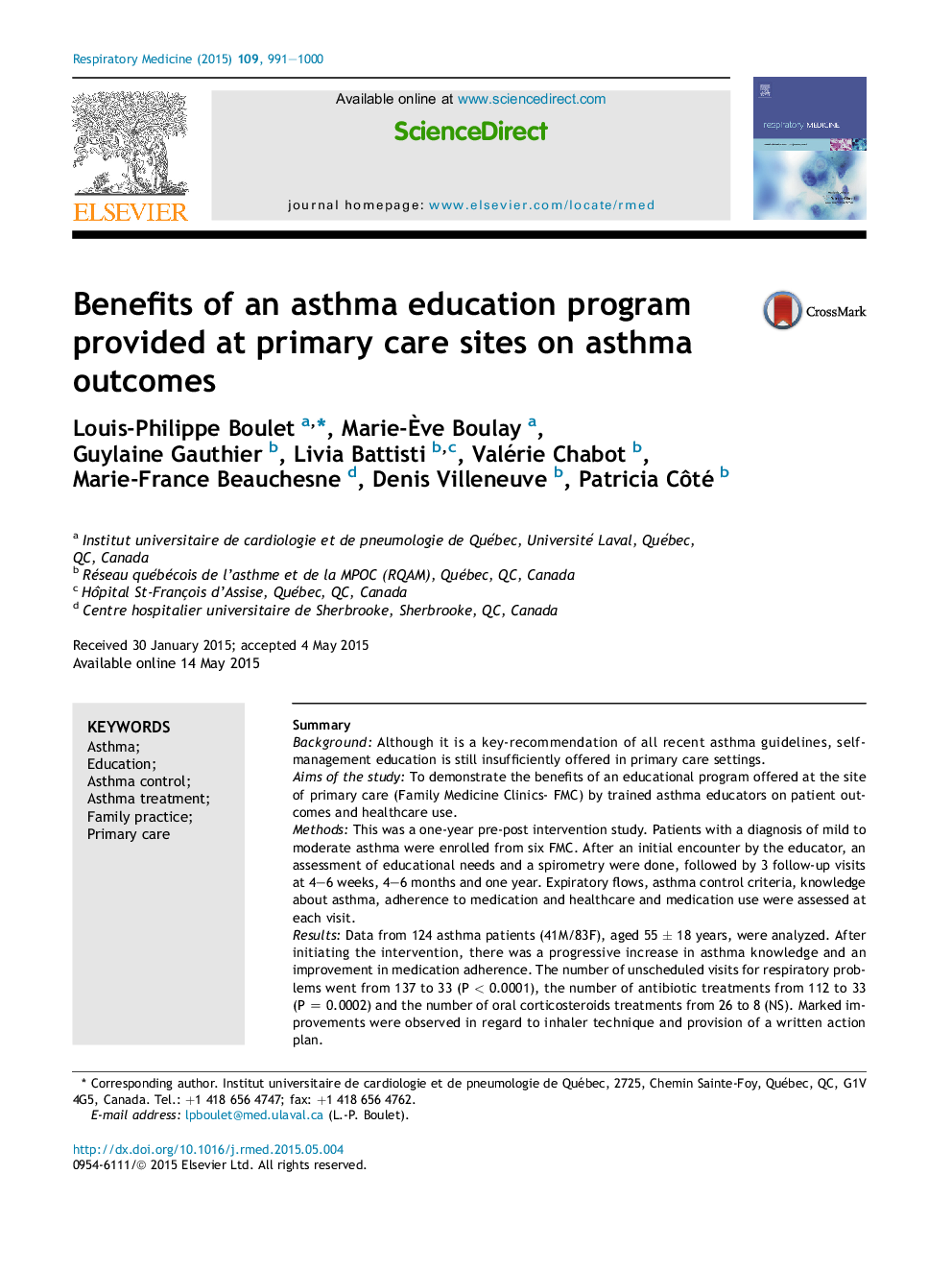| کد مقاله | کد نشریه | سال انتشار | مقاله انگلیسی | نسخه تمام متن |
|---|---|---|---|---|
| 6241653 | 1280558 | 2015 | 10 صفحه PDF | دانلود رایگان |
SummaryBackgroundAlthough it is a key-recommendation of all recent asthma guidelines, self-management education is still insufficiently offered in primary care settings.Aims of the studyTo demonstrate the benefits of an educational program offered at the site of primary care (Family Medicine Clinics- FMC) by trained asthma educators on patient outcomes and healthcare use.MethodsThis was a one-year pre-post intervention study. Patients with a diagnosis of mild to moderate asthma were enrolled from six FMC. After an initial encounter by the educator, an assessment of educational needs and a spirometry were done, followed by 3 follow-up visits at 4-6 weeks, 4-6 months and one year. Expiratory flows, asthma control criteria, knowledge about asthma, adherence to medication and healthcare and medication use were assessed at each visit.ResultsData from 124 asthma patients (41M/83F), aged 55 ± 18 years, were analyzed. After initiating the intervention, there was a progressive increase in asthma knowledge and an improvement in medication adherence. The number of unscheduled visits for respiratory problems went from 137 to 33 (P < 0.0001), the number of antibiotic treatments from 112 to 33 (P = 0.0002) and the number of oral corticosteroids treatments from 26 to 8 (NS). Marked improvements were observed in regard to inhaler technique and provision of a written action plan.ConclusionThis study shows that an educational intervention applied at the site of primary care can result in significant improvements in patient asthma outcomes and reduce unscheduled visits and inappropriate use of medications such as antibiotics.
Journal: Respiratory Medicine - Volume 109, Issue 8, August 2015, Pages 991-1000
